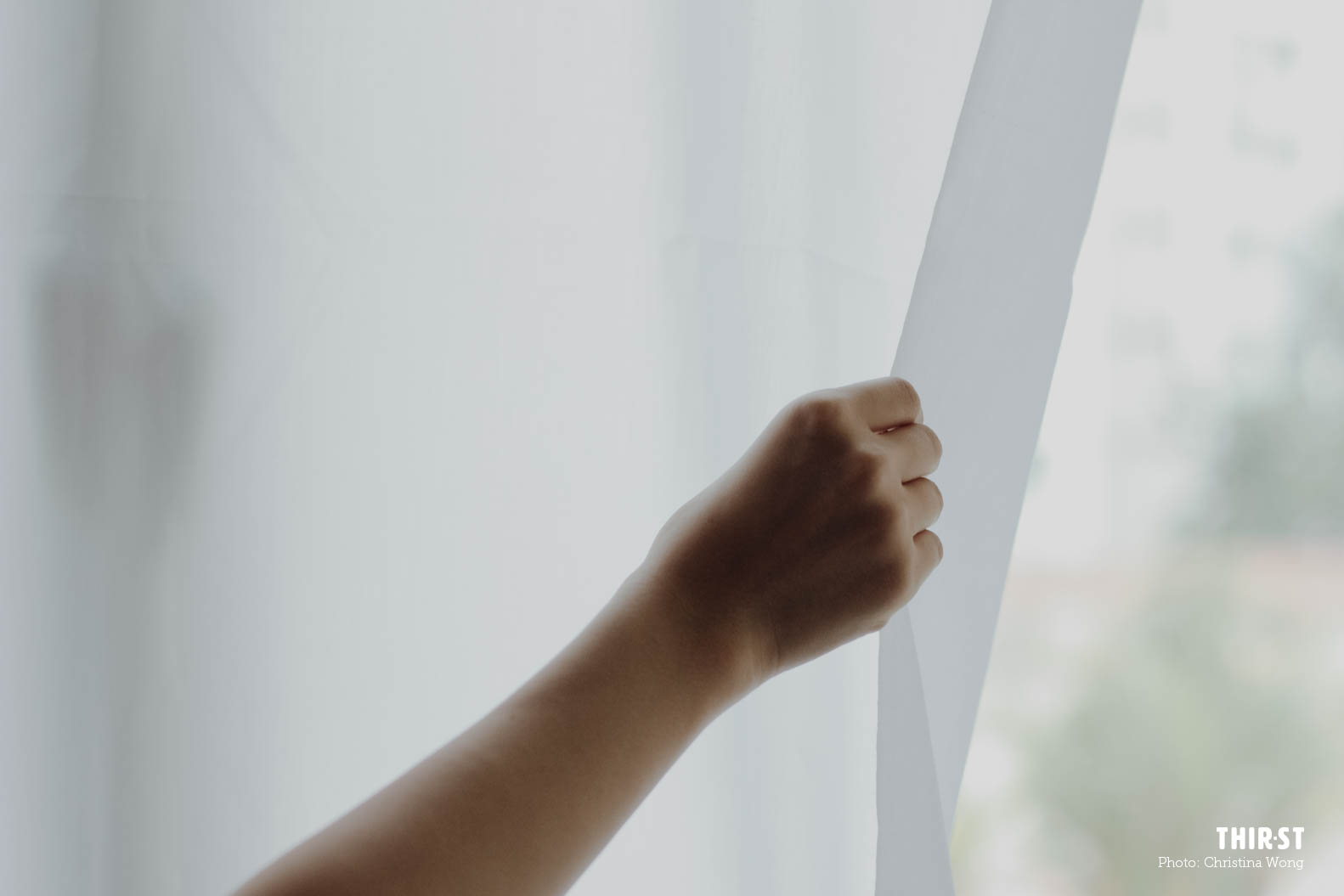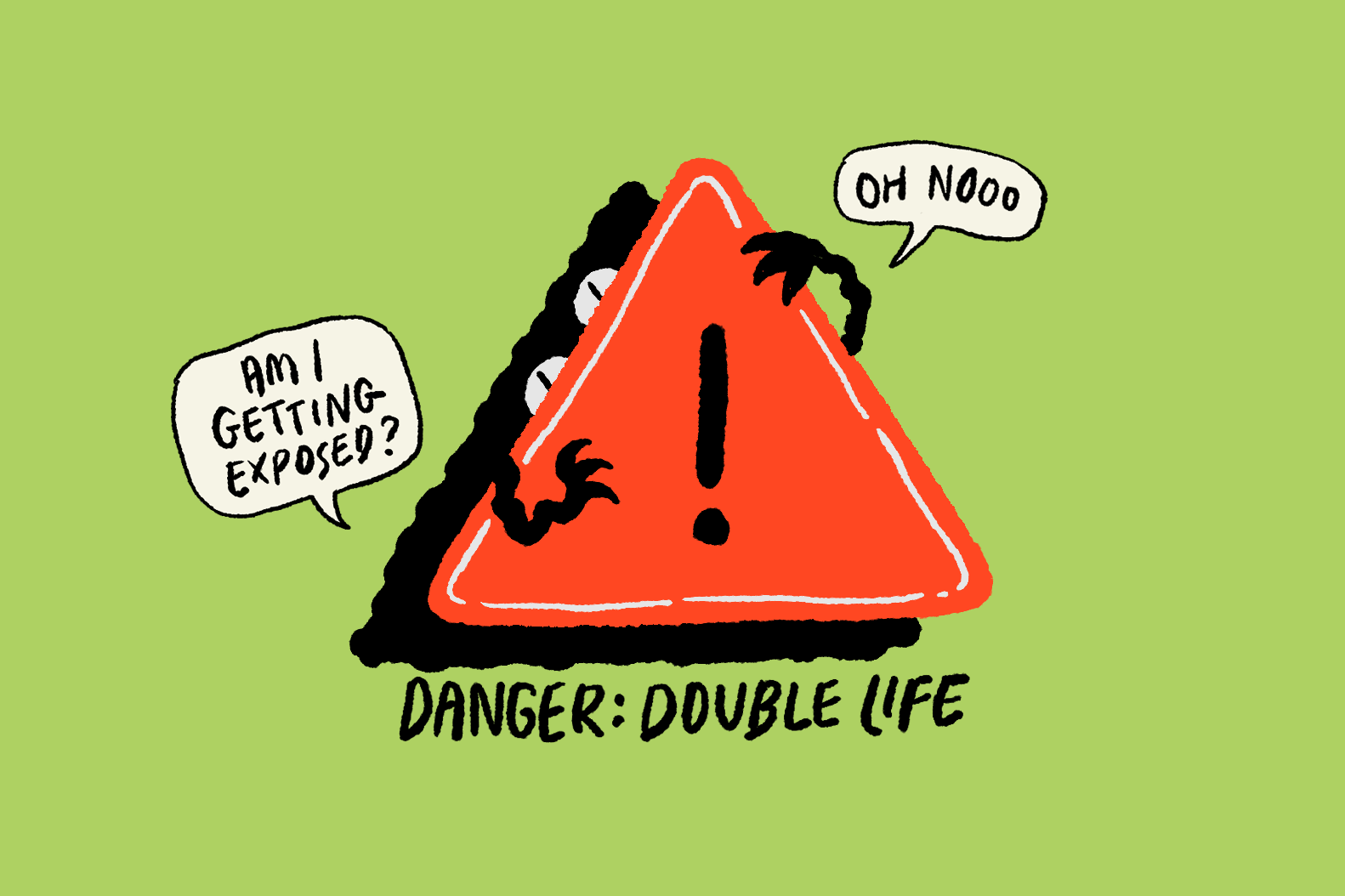Pills and broken glass, tears and blood, fear and despair. It was one of the darkest nights of my life. I didn’t want to do it yet I couldn’t see how to face the next day. The pain of ending everything there and then seemed less than the pain of going on. I lay down in bed, waiting to bleed out and knock out, to sleep the last sleep. I was 19.
Two years before that night, shortly after I entered junior college, I lost interest in my studies. It was a very stressful time for me. My grades took a nosedive, which made me even more unmotivated. I slept a lot and my mood was low most of the time. There were times when I’d cut myself. I thought that experiencing physical pain was the only way to express and cope with my inner pain. I didn’t know why I was feeling that way.
A few months after my A-Level examinations, I received a letter from the Ministry of Defence informing me of the date of my enlistment into National Service (NS). That’s when my world came crashing down.
You see, I wasn’t an athletic or sporty kid growing up. So my parents often told me that if I didn’t build myself up physically, I wouldn’t be able to make it through the rigours of NS. I understand now that that was their well-intentioned way of motivating me to be more prepared, but all through my teenage years, I took their comments to mean that I was inadequate for, and so would not survive, military life.
Since secondary school, I also struggled intensely with not being able to fit in with the other boys in class and I realised I was attracted to guys. So the idea of being stuck in a hyper-masculine military environment with other guys terrified me and I was worried of what might happen if they knew I was gay. All of my worries added up into a deep fear of enlistment.
I began to desperately plead with God to engineer a miracle to get me out of this situation. I made bargains with Him. If only He’d take this away, I promised to do certain things in return. I spent nights lying in bed with fearful thoughts and frantic prayers, crying myself to sleep, and getting up again in the middle of the night to beg Him to make this go away.
But the days went by, and nothing happened. I met up with my closest junior college friends for the last time, I researched quick and painless ways to die, and I wrote my final letters to my family members.
All through that time, fear was building up in my heart and intrusive dark thoughts kept running through my mind. On the one hand, I didn’t want to end my life, but on the other hand, I believed this was the only exit from the situation I dreaded so much. I struggled with troubling questions of whether God would forgive me if I committed suicide. Was it a pardonable sin or an act so heinous that I’d be condemned to hell?
The love and grace of the Father for you and me is the same, regardless of our present struggles or past mistakes.
Then came the day before my enlistment. There was still no miracle. I waited at night until all my family members were asleep and carried out my plan. As I laid down in bed, I was banking all my hopes on the pills or the bleeding to get the job done. I wondered what I’d see on the other side of life. Would I see God?
When I opened my eyes, the first person I saw was my mum crying hard at the foot of the bed. I gradually realised that I was in the hospital. My first thought was, “Oh, sh**.”
I didn’t succeed. I was still here. What was going to happen now?
THE LOVE OF THE FATHER
Well, what happened as I recovered was that I found out how much I was loved. Sure, I was aware before this that my parents loved me, but that was not something that I knew in any deep, experiential way. When I saw my mum crying her eyes out, I realised she cared for me much more than I’d believed. And I’d never seen my dad and grandma that anxious and heartbroken before.
A close secondary school friend came to visit. She told me that the medical team had to pump the pills out of my body. My tuition teacher visited, and I was surprised to see her burst into tears. She read Psalm 121 to me to assure me that God would always watch over me and help me. After I was discharged, all my relatives came over, showing their concern and sharing their counsel in their own ways. I never knew the people in my life cared this much about me.
I remember the day my family took me home from the hospital. We didn’t talk much on the way back. I went to my room and sat down on my bed. A moment later, my dad came in with a paper bag. It contained my journals, in which I’d written what I’d meant to be my last words to my family members. He handed me the bag and said: “Let’s take it that this never happened.”
I understood it as an act of grace, of mercy. Perhaps it was the tender and quiet way he said it. Or perhaps, it might be how he offered that statement to me as a gesture of kindness. He laid there before me the gift of a clean slate. That, perhaps, was the miracle.
God is eager to heal and restore; He’s in the business of resurrecting lives.
What my dad did was a small yet significant reflection of what my heavenly Father did for me: God offered to forget my sins and give me a clean slate, if I would accept and believe in the gift of His Son, Jesus. The particulars of my story may or may not be similar to yours, but the love and grace of the Father for you and me is the same, regardless of our present struggles or past mistakes. God is eager to heal and restore; He’s in the business of resurrecting lives.
I saw a psychiatrist for two years after that. He helped me to recognise that I had been clinically depressed since my junior college days, and my depression had worsened as my enlistment date — what I’d deeply feared — drew near. Over time, with medication, counselling and a supportive Christian community, I got better.
My enlistment date was deferred until several months later. During my time in NS, I experienced how God was faithful in bringing me through those years. I learned to know Him more truly as the God from whom my help comes (Psalm 121:1-2), the One who constantly watches over me and carefully keeps me from harm (Psalm 121:3-8).
Today, you can still see scars, but much faded now, etched on my left forearm from that dark night. But because of the lavish love and merciful forgiveness of God, shown to me by the wounds of Jesus at the Cross, I can look at the scars of shame and see instead the marks of His grace (Isaiah 53:5).
This article was first published on YMI and is republished with permission.
If you’d like to speak to someone, help is available at the following centres:
Samaritans of Singapore (SOS) 24-hour Hotline: 1800 221 4444 or pat@sos.org.sg.
Institute of Mental Health’s 24-hour Hotline: 6389 2222
Care Corner Counselling Centre (Mandarin): 1800 353 5800
Singapore Association for Mental Health: 1800 283 7019
And if you know someone who is at immediate risk, do reach out to emergency medical services.
- What was the most difficult moment of your life?
- How did you cope?
- Who is someone you can go to for help in such moments?










